Dear colleagues,
In today's newsletter you can find information about our webinar series, the events we are planning for the annual SFRR-E meeting in Vienna dedicated only to ECRs and we will also introduce the other half of the current members of the ECR subcommittee of the SFRR-E. Moreover, as always, we have collected some interesting upcoming events with important deadlines and some cool redox reads.
Webinar series “Emerging leaders in redox biology”
Our last webinar featured Louise Hecker and she shared her insights in NOX4 as a therapeutic target for age-related diseases. Thanks to your participation, the webinar had a great turn out. If you could not attend, you can find recordings of our previous webinars in the society’s intranet.
Our next webinar will be on 4th April 2023 at 15:00 and we are happy to announce this month’s speakers:
 Jörg Mansfeld, PhD
Jörg Mansfeld, PhD
Jörg is a group leader at The Institute of Cancer Research ICR, London, UK. His team investigates protein modifications by ubiquitin and redox systems in cell proliferation and tumorigenesis. He has won several awards, including an Emmy Noether Programme grant, an ERC Starting Grant and most recently a Cancer Research UK grant.
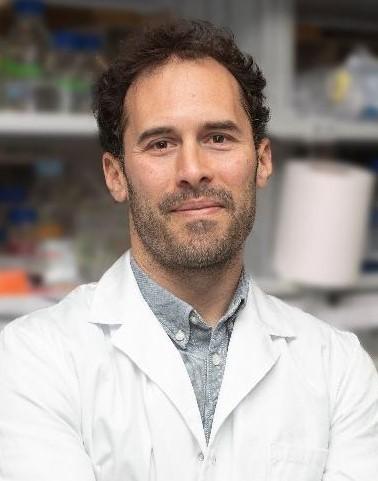 Eduardo Balsa Martínez, PhD
Eduardo Balsa Martínez, PhD
Eduardo is a group leader at the Centro de Biología Molecular Severo Ochoa (CBMSO), Madrid, Spain. His team investigates mitochondrial metabolism in human physiology and disease. He was granted an ERC Starting Grant in 2020.
The speakers will share insights into their academic career to date and key findings from their research.
SFRR-E Meeting in Vienna in June: Join us there
The next annual meeting of the SFFR-E will be in Vienna, 6-9 June 2023. If you haven't registered already, there is still time until the 31st March! https://www.redoxvienna2023.com/registration/
We are planning a great selection of events dedicated to Early Career Researchers!
On Tuesday 6th June 2023 at 17:30 there will be a Meet the Professor session (accompanied by wine and cheese). If you are interested to attend, either as a professor or as an ECR, you can already register your interest here: https://www.surveymonkey.de/r/GJRL7G7
Later on, at 18:30, we have planned our ECR-only meet and greet event. This is our annual event, only for early career researchers (Students, Postdocs and Assistant Professors). Join us for an opportunity to network with like-minded individuals and enhance your conference experience.
WHO is the ECR subcommittee? - a short introduction round (part II)
In our February edition, we already introduced some of our members and will continue in today's newsletter with the remaining members of the Early Career Researchers subcommittee of the Society for Free Radical Research Europe (SFRR-E).
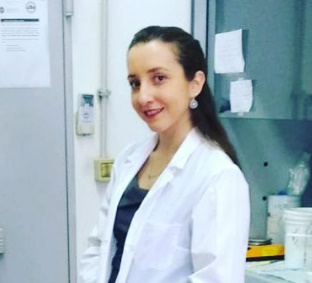 Veronica Lisi is a PhD candidate at University of Sport science in Rome, Italy. My research focuses on the role of extracellular vesicles mediated cross talk during physical exercise in redox homeostasis maintenance and their role in cardioprotection.
Veronica Lisi is a PhD candidate at University of Sport science in Rome, Italy. My research focuses on the role of extracellular vesicles mediated cross talk during physical exercise in redox homeostasis maintenance and their role in cardioprotection.
My academy career started with a bachelor’s degree in Natural Sciences. When I was very young, I was fascinated about all the aspects of our amazing planet. As soon as I started taking the genetics course, I fell in love with it. So, I applied for the experimental thesis, and after going into a lab I decided labs would be my habitat. I had the opportunity to go on to work in genetics on the Drosophila melanogaster model and eventually got a master’s degree in Genetics and Molecular Biology, at university of Rome “La Sapienza” with a thesis about the genetic interaction between two proteins involved in spinal-muscular atrophy on the Drosophila melanogaster model. At that point I realized that in order to continue my academic dream I needed a PhD, and the doors of the university of Sport sciences in Rome opened to me. So, I had to give up my lovely drosophilae, but I always love to practice sport and the idea of investigating cellular and molecular mechanisms due to exercise excited me. I had with this Ph.D. the opportunity to learn about the amazing world of Redox Biology and Extracellular Vesicles that still have a lot for us to discover. Not to mention the fantastic experience of the SFRR-E conferences and my mobility period in Switzerland! What can I say? I feel like I am just starting out and I know for sure that my future life will still be tied up with labs and academia for a long time to come.
What annoys you in the lab? Bad western blot and contaminated cells.
What do you like to do the most in the lab? Immunofluorescence in cells.
What is your favourite thing to do for celebrating a successful experiment? Drink a beer with colleagues.
Which was your first spot in your lab coat? Blue marker pen.
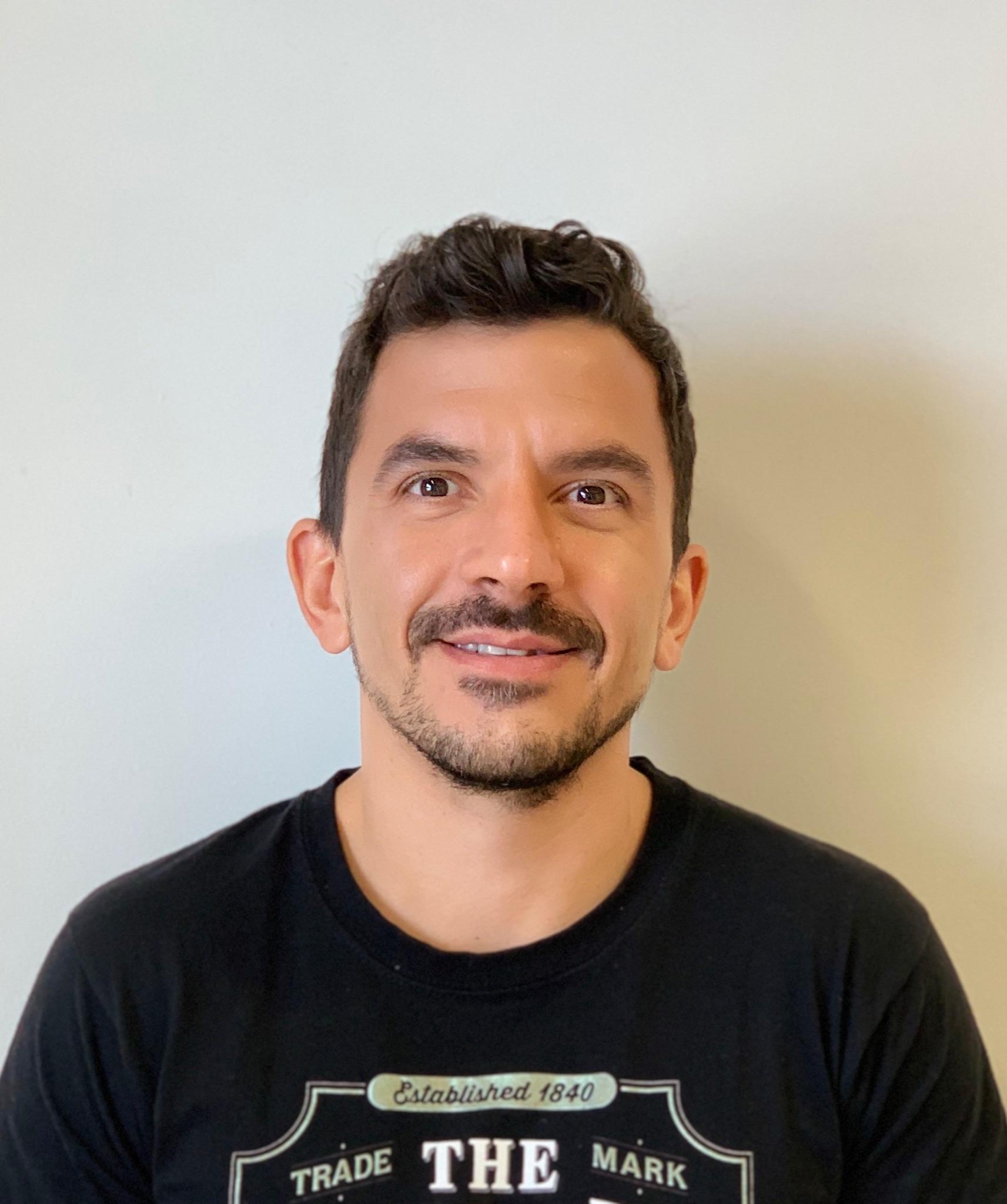 Timoteo Marchini is a Postdoc working at the Cardiology Department of the University Hospital Freiburg, Germany, and as a science communicator in El Gato y La Caja (@elgatoylacaja). My research focuses on the modulation of redox metabolism and inflammation by the exposure to air pollutants in cardiometabolic diseases.
Timoteo Marchini is a Postdoc working at the Cardiology Department of the University Hospital Freiburg, Germany, and as a science communicator in El Gato y La Caja (@elgatoylacaja). My research focuses on the modulation of redox metabolism and inflammation by the exposure to air pollutants in cardiometabolic diseases.
I studied Biochemistry to gain a better understanding of toxicology. During my M.Sc. and Ph.D. at the University of Buenos Aires, Argentina, I focused on the impact of air pollutants in heart physiology. I have later settled among cardiologists at the University Hospital Freiburg, Germany, to study how urban air pollution modulates redox metabolism and inflammation in cardiovascular and metabolic diseases, using in vitro approaches, animal models, and human patients. I have learnt a lot from working in such an interdisciplinary and diverse environment! In parallel, I have spent quite some time in sharing my latest findings (and from others!) with the general audience and local governmental agencies as a science communicator, mostly by joining a mutant internet-based communication, research, and design initiative known as El Gato y La Caja (@elgatoylacaja). Like realizing how new students gradually gain new skills and scientific judgement, contributing to build environmentally friendly changes in behaviour and evidence-based public policies is quite a demanding enterprise, yet highly fulfilling.
What annoys you in the lab? People showing up late for experiments and leaving samples unattended. Messy and dirty working spaces. Infinite excel sheets.
What do you like to do the most in the lab? The day of the harvest after long term planning and treatments. Analysing valuable data. Drawing schematics to better understand the results and properly decide the next step. And finding new ways and locations to communicate them.
What is your favourite thing to do for celebrating a successful experiment? Pub Quiz at a local Irish bar.
Which was your first spot in your lab coat? Concentrated nitric acid. R.I.P. my lab coat =/.
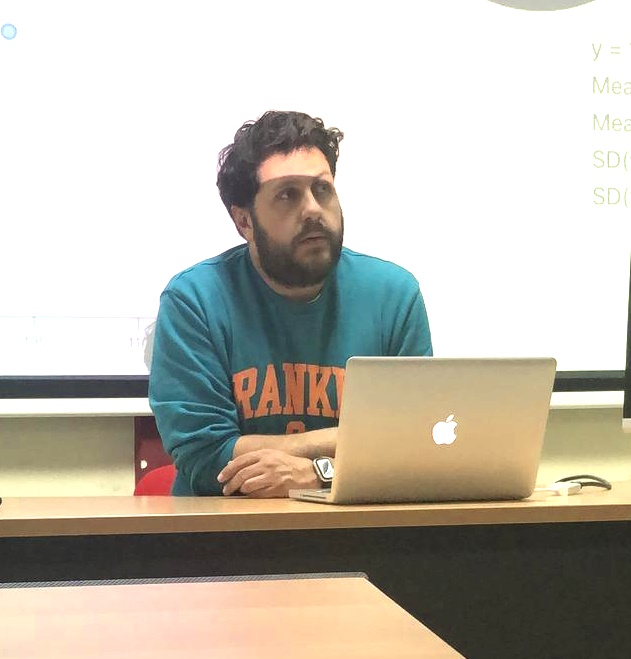 Nikos Margaritelis works as an Assistant Professor at the Department of Physical Education and Sports Science of the Aristotle University of Thessaloniki, Greece. My research focuses on exercise redox biology and the issue of inter-individual variability and personalized treatments.
Nikos Margaritelis works as an Assistant Professor at the Department of Physical Education and Sports Science of the Aristotle University of Thessaloniki, Greece. My research focuses on exercise redox biology and the issue of inter-individual variability and personalized treatments.
I was working as a healthcare professional at the ICU of the General Military Hospital of Thessaloniki, Greece for about 15 years. Then, I started the MSc in Kinesiology at my current department and a single lecture on redox biology during the first semester was enough to decide what I was looking for. Linking redox biology processes with physiological outcomes, such as exercise performance and adaptations, as well as interpreting redox heterogeneity among people (generally known as inter-individual variability) are the topics that I particularly like and were therefore the main topics of my MSc and PhD theses (and still working on them). I am a fan of reading and applying novel research methods, becoming confused with statistics and integrating knowledge from ‘distinct’ redox biology fields into a theoretical unifying theory. I’m not a very fan of lab work.
What annoys you in the lab? When the results are weird and cannot find the reason.
What do you like to do the most in the lab? To bother colleagues working around me…
What is your favourite thing to do for celebrating a successful experiment? Going for a walk with colleagues.
Which was your first spot in your lab coat? I really don’t remember.
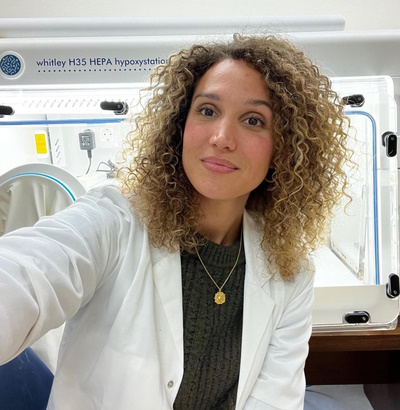 Cristina Mas-Bargues is an Assistant Professor currently working at the Department of Physiology, University of Valencia, Spain. My research focuses on stem cell aging and oxidative stress.
Cristina Mas-Bargues is an Assistant Professor currently working at the Department of Physiology, University of Valencia, Spain. My research focuses on stem cell aging and oxidative stress.
I studied a Pharmacy degree to introduce myself in the healthcare environment. I then started a Master’s degree in Physiology where I discovered the world of redox biology and aging. This fascinated me! I jumped into the lab to learn as much as I could, you know, PCRs, cell culture, mice training, flow cytometry and of course, the wonderful world of western blotting… It’s been almost 10 years since I first entered my lab, my current home. I have been in other labs (University of Berkeley, CA and Albert Einstein College of Medicine, NY), and every lab has its own curiosities and lab mates to teach you whatever technique they are trying to do. This is why I love science, sharing knowledge, meeting people and making friends!
What annoys you in the lab? People that use pipette tips in disorder, or people that don’t refill after finishing whatever.
What do you like to do the most in the lab? Receiving new kits or reagents… it feels like Christmas hahaha.
What is your favourite thing to do for celebrating a successful experiment? I must make a shout out so everybody knows hahaha I usually post it on Instagram.
Which was your first spot in your lab coat? Ufff... mice pee.
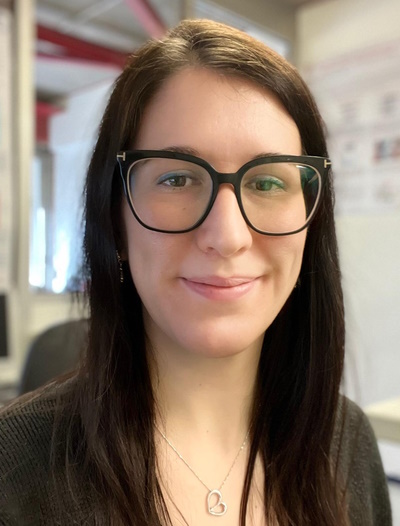 Valeria Scalcon is a researcher working at the Department of Biomedical Sciences, University of Padova, Italy. My research interests are thiol redox regulation and antioxidant bioactive molecules.
Valeria Scalcon is a researcher working at the Department of Biomedical Sciences, University of Padova, Italy. My research interests are thiol redox regulation and antioxidant bioactive molecules.
I graduated in Pharmacy as I was interested in chemistry and in understanding how medicines worked. During the first year, I attended a Biochemistry course that I really enjoyed and that got me captivated by this discipline. Thus, I entered a Biochemistry lab for my thesis internship, which led me to the area of redox biology. I was so absorbed and fascinated by redox research that I am still working in this field, 8 years later, as a researcher after achieving a PhD in Biomedical Sciences and several Post-doctoral experiences. In these years, I had the pleasure of encountering plenty of scientists and made new friends from all around the world, which is an added value of being a researcher!
What annoys you in the lab? Mercaptoethanol and Dithiothreitol smells.
What do you like to do the most in the lab? Discussing experiments with lab mates.
What is your favourite thing to do for celebrating a successful experiment? Have a pizza!!
Which was your first spot in your lab coat? Potassium permanganate when I was an undergraduate student.
More information about the ECR Subcommittee can be found on the SFRR-E website (https://www.sfrr-europe.org/index.php/sfrre/ecr-early-career-researcher), while regular updates can be found on Twitter (@SFRR_Europe) and Instagram (@sfrr_ecr).
For any question or suggestion you might have, you can contact us via email:
Hope to see you in our next Webinar Series appointment,
The ECR subcommittee
Upcoming events:
SFRR-E Annual Meeting
Redox Biology in Translation
5–9 June 2023
Vienna, Austria
Registration deadline: 31 March 2023
FASEB Science Research Conference
The Endoplasmic Reticulum (ER) Conference: Structure, Function and Disease
11–15 June 2023
Melbourne, Florida
Abstract submission deadline: 9 April 2023
EMBO Practical Course
Characterisation of post-translational modifications in cellular signalling
15–22 June 2023
Odense, Denmark
Abstract submission deadline: 6 March 2023
SfRBM - SFRRI 2023
SfRBM 2023 & SFRRI 21st Biennial Meeting
15–18 November 2023
Punta del Este, Uruguay
Abstract submission deadline: 1 September 2023
Interesting Reads:
Skeletal muscle and erythrocyte redox status is associated with dietary cysteine intake and physical fitness in healthy young physically active men
Konstantinos Papanikolaou et al – European Journal of Nutrition
Small extracellular vesicles from senescent stem cells trigger adaptive mechanisms in young stem cells by increasing antioxidant enzyme expression
Cristina Mas-Bargues et al – Redox Biology
AutoComet: A fully automated algorithm to quickly and accurately analyze comet assays
Lise Barbé et al – Redox Biology
Hydrogen peroxide production by epidermal dual oxidase 1 regulates nociceptive sensory signals
Anna Pató et al – Redox Biology
